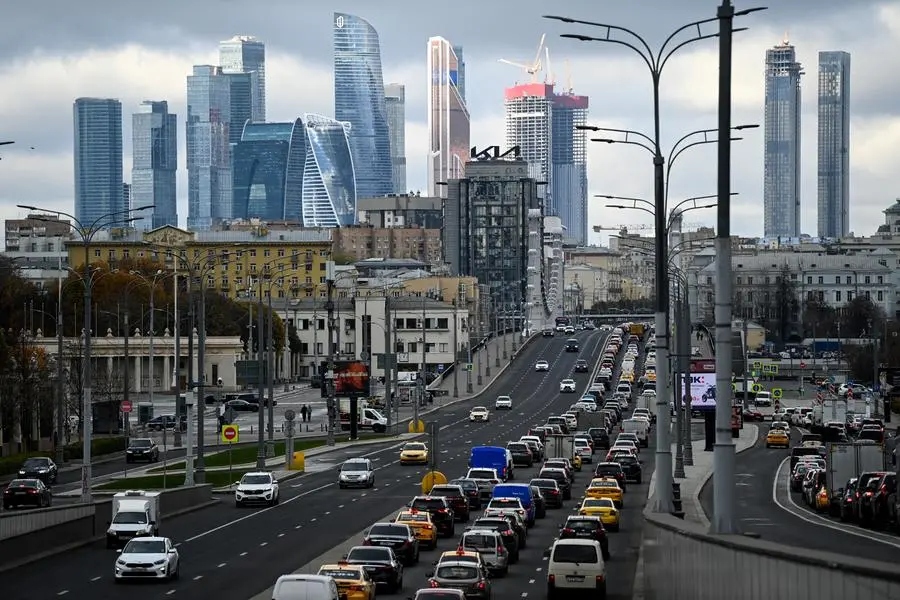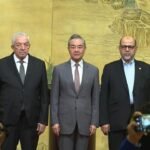Russian economy’s growth despite Western sanctions, is a multifaceted phenomenon. Sanctions were aimed to cripple Russia’s financial and economic capabilities, the country has managed to exhibit a degree of economic growth. One of the key strategies Russia has employed is the diversification of its economy. Historically, Russia has been heavily dependent on its oil and gas exports. However, anticipating prolonged sanctions, the Russian government has made concerted efforts to diversify its economic activities. Agriculture, technology, and domestic manufacturing have received significant boosts through state subsidies and incentives.

For instance, the agricultural sector has seen substantial growth. Russia has become one of the world’s leading grain exporters, reducing its reliance on imports and strengthening its food security. This shift not only buffers the economy against sanctions on other sectors but also generates foreign exchange revenue.
Import Substitution
Another crucial element is the policy of import substitution. In response to sanctions that limit the availability of foreign goods and technologies, Russia has invested in developing its own alternatives. This policy has spurred innovation and the growth of domestic industries, reducing dependency on Western imports. Sectors such as pharmaceuticals, automotive, and electronics have benefited from this approach.
The government’s support for these industries includes financial assistance, tax breaks, and the establishment of special economic zones to foster domestic production. Over time, these measures have built a more self-sufficient economy less vulnerable to external shocks.
Strategic Alliances
Russia has also actively sought to strengthen its economic ties with non-Western countries. By pivoting towards Asia, particularly China and India, Russia has opened new markets for its exports and secured critical imports. The Sino-Russian relationship is particularly noteworthy, with China becoming a major trade partner and investor in Russia’s energy and infrastructure projects.
Furthermore, Russia’s involvement in multilateral organizations like the Eurasian Economic Union (EAEU) enhances regional economic integration, facilitating trade and investment among member countries. These alliances help mitigate the impact of Western sanctions by providing alternative economic partnerships.
Energy Sector Resilience
Despite sanctions targeting its energy sector, Russia remains one of the world’s largest energy producers. High global energy prices have bolstered Russia’s revenue from oil and gas exports. While sanctions have complicated transactions, Russia has developed mechanisms to continue trading energy products, such as using alternative currencies and trade routes.
Additionally, investments in energy infrastructure, like the Power of Siberia pipeline to China, ensure long-term demand for Russian energy, sustaining this critical revenue stream. The global energy market’s dynamics often mean that despite sanctions, there is still significant demand for Russian oil and gas, especially from countries not aligned with Western policies.
Financial Prudence and Sovereign Wealth Fund
Russia’s financial prudence has also played a significant role in its economic resilience. The country has accumulated substantial foreign reserves and maintains a significant sovereign wealth fund, the National Welfare Fund (NWF). These reserves provide a financial buffer, allowing the government to support the economy and stabilize the currency during periods of economic stress.
The Central Bank of Russia has also adopted measures to stabilize the ruble, such as increasing interest rates and implementing capital controls. These steps have helped mitigate the immediate impacts of sanctions on the currency and inflation, maintaining economic stability.
Technological and Digital Adaptation
Technological adaptation has been another area where Russia has shown resilience. With Western technology companies withdrawing from the Russian market, domestic firms have stepped in to fill the gap. The development of homegrown tech solutions, from software to hardware, has not only provided alternatives to Western products but also fostered innovation within the country.
Moreover, Russia’s focus on digitalization and the development of its own financial transaction systems, like the Mir payment system, reduces reliance on Western financial infrastructure. This independence is crucial in maintaining economic transactions and financial stability amidst sanctions.
Conclusion
The Russian economy’s growth despite Western sanctions is a result of strategic diversification, import substitution, and strengthening of alliances with non-Western countries. The resilience of the energy sector, prudent financial management, and technological adaptation have also played vital roles. While the sanctions have undoubtedly posed significant challenges, these multifaceted strategies have enabled Russia to not only withstand but also adapt and grow in a restrictive international environment.
This resilience underscores the complexity of global economic interactions and the limitations of sanctions as a tool of economic coercion. It highlights the importance of strategic economic planning and the potential for nations to find alternative pathways to sustain and grow their economies despite external pressures.
4o





Leave a Reply